Turkey, mince pies and pigs in blankets were all touted to be in short supply, so has the food industry (and government) done enough to save Christmas?
Bernard Matthews knew it had to go all out on Christmas recruitment this year. With a nationwide shortage of workers leaving the 2 Sisters-owned turkey supplier contemplating the possibility that Christmas tables may go without their festive bird, it threw everything into getting the workers it needed.
“We need you to help us save Christmas!” the turkey producer implored, an Uncle Sam-style finger pointing out. “There is a great risk that we cannot produce enough turkeys … sign up and apply to help deliver an amazing Christmas in 2021!”
Bernard Matthews is one of the more zealous voices on supply chain struggles this Christmas, but food companies making everything from mince pies to pigs in blankets are in the same boat.
The dual strike of Covid-19 and post-Brexit immigration changes has left sectors long reliant on EU workers suddenly struggling to make up a shortfall in labour. There are now 26,000 seasonal job vacancies in the UK ahead of the pivotal Christmas period, twice as many as the same time last year, according to jobs website Adzuna.
Still, the supermarkets remain sanguine that the public will get the Christmas it desires. “Plans are in place to make sure we have everything that customers need at Christmas,” M&S CEO Steve Rowe said earlier this month, echoing the assurances of, among others, Sainsbury’s CEO Simon Roberts that it was in a “good position” ahead of the festive season. So what are they doing to ensure a star-spangled Christmas is delivered?
Even the prime minister has faced questions over the possibility of empty shelves this year. “I’m very confident this Christmas will be considerably better [than last year’s],” he told reporters last month, an admittedly low bar given 2020’s festivities were humbugged by a last-minute lockdown.
But Boris Johnson clearly didn’t fancy playing the Grinch for the second year in a row. Following loud calls from the meat and poultry sector that a lack of workers could leave Christmas tables without meaty treats this year, the government announced seasonal worker schemes for up to 5,500 poultry workers and 800 pork butchers to come to the UK in the autumn.
Christmas essentials: will there be shortages?
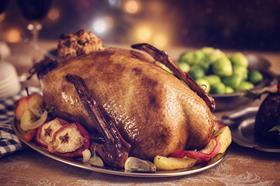
Goose
The closure of the last two British hatcheries this year has left goose supplies slightly stretched. Gressingham Foods, the UK’s largest goose supplier, says its bird numbers are down by 13% despite efforts to acquire the same amount. The UK typically supplies fresh birds while Europe sends in the frozen, but expect the European share to slowly creep up in years to come.
Pigs in blankets
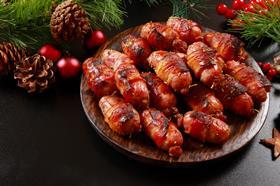
A shortfall is now almost inevitable given the labour-intensive work in producing one of Brits’ favourite Christmas treats. Pigs in blankets are often produced months in advance and frozen as they are so fiddly and time-consuming. The government’s visa scheme, therefore, will have only a limited effect, though retailers may look abroad to top up supply.

Potato
The classic roast potato is the most essential veg on the plate for 87% of people, according to Tesco’s 2021 Christmas Report. It therefore caused some alarm when news broke of floods in Europe. How severe was the damage? Will it have a knock-on effect on the availability of UK-grown spuds. Luckily for a nation of potato lovers, this has so far not come to pass. Phew.
Wine

English sparkling has earned its place on Christmas tables across the country, but European bubbly is still a must-have for many. Luckily, Network Rail is putting on extra trains to bring in the booze due to the shortage of lorry drivers in the UK. The weekly “wine train” will race to transport 4.5 million bottles from Europe into supermarkets before Christmas Day.

Chocolate
Quality Street tins are under threat this year due to labour shortages and transportation issues. When asked whether he could guarantee Quality Street would be in the shops this Christmas, Nestlé CEO Mark Schneider simply replied: “We are working hard.” Some Brits took the news of fewer toffee pennies hard. “Christmas is cancelled,” said one Twitter user.
The scheme was certainly a relief for Bernard Matthews. It’s found around 900 temporary workers to join its ranks. Still, at £500 a visa, the scheme hasn’t come cheap. While Paul Kelly of the KellyBronze free-range turkey farm is “quite confident now we’ve got the labour, the price increases are massive because the labour costs have gone up due to the visa costs”.
But for many pork processors, it was too little too late. A country’s supply of pigs in blankets usually takes about a couple of months to make, meaning they are produced in advance and frozen. For them, the lack of workers earlier in the year mean a shortfall in supply is already baked in.
“Anything that requires a lot of extra butchery … won’t be there in the usual quantity,” says Nick Allen, CEO of the British Meat Processors Association. Gammon, for example, will likely be among those running short. “But to be honest,” adds Allen, “is the consumer going to notice much difference? I doubt it.”
Read certain newspapers and you’d think otherwise: “Butcher shortage could ruin Christmas for millions of Brits as pigs in blankets at risk” said one. Allen is right though: most Brits don’t seem too bothered. A YouGov survey found in October that almost half of Brits are expecting turkey shortages this year but only 18% care, while 40% think there will be a lack of pigs in blankets but just 19% would mind.
Rationalising
Supermarkets will certainly hope those numbers ring true, for 2021 is a year of reduced choice across stores – and not all of it is accidental. The strain on the supply chain has forced food businesses to take difficult decisions, in many cases rationalising ranges to help ensure continuity of supply.
It has meant the number of SKUs in the supermarkets fell 0.4% in November compared with October, according to Assosia, at a time when usually they’d be ramping up. But in many cases this will simply mean a reduced choice – from five pickles to three, for example, explains Andrew Opie, director of food and sustainability at the British Retail Consortium, who insists “everything you expect for your Christmas lunch is going to be in store”.
Relative calm
The food industry is certainly calmer over Christmas than it was just a few weeks ago. Many key decisions are now made, plans are being executed, and businesses throughout the supply chain know what they’re working towards. “There’s a lot on the line at Christmas – it’s such an important time of year so the investment has gone into it,” says Opie.
Much of that investment from supermarkets at least has gone into securing lorry capacity. Since the summer, the supermarkets have offered inflated pay packets and bonus schemes to HGV drivers to lure them on to their payrolls. And it worked, much to the consternation of the rest of the supply chain, which suddenly found it much harder to find drivers.
“The supply chain will cope with Christmas because decisions are being made at every level to protect resilience”
Now, in preparation for the Christmas rush, supermarkets have extended the policy further by agreeing additional contracts with third-party logistics providers. This will ensure that when the Christmas rush begins in earnest in December, they are certain of being able to transport the food currently building up in their distribution centres into stores.
“They beefed that up because they can’t afford to fail to deliver to stores,” says Jonathan Kittow, director at Simply Supply Chain. “But for now it means they’re all over-contracted and so they’re trying to work out how they can help suppliers deliver volume into distribution centres because obviously they’ve taken the drivers from a finite pool.”
To help smooth the flow of deliveries into distribution centres, supermarkets have relaxed some of their more unpopular policies over delivery times. Chilled deliveries, for example, are no longer expected on a day-one for day-one basis – rather a day-one for day-two or day-three basis has become the norm.
And no longer is a lorry turned away if it arrives outside its allotted hour. Instead, staffing restraints have pushed supermarkets to reduce the number of deliveries they accept each day to ensure they can cope with the deliveries they do get, says Shane Brennan, CEO of the Cold Chain Federation.
“The supply chain will cope with Christmas,” he says. “But it’ll cope because decisions are being made at every level to protect resilience. Which means scaling down expectations, scaling down ranges, scaling down delivery slots. All so the supply chain can guarantee Christmas rather than over promising and under delivering.”
For ambient suppliers, products are now flowing steadily into supermarket distribution centres, helped by delivery slots that are open around the clock. Chilled products will start arriving in December. The greater challenge is with discounters like B&M and Home Bargains, who have diversified into food but are typically only open for deliveries at select hours.
Consumer shifts
The entire food supply chain looks set to be aided by significant shifts in customer behaviour this year. In most years, many shoppers leave their Christmas shopping until the last minute, meaning sales often grow by around a third in the fortnight before 25 December.
So far, this year appears a bit different. Frozen turkey sales almost doubled in the month to 9 November compared with the same period in 2020, according to Kantar, while 1.6 million Christmas puddings flew off shelves in the same period. Iceland saw a 400% year-on-year rise in turkey sales in October and MD Richard Walker said its Christmas website went live a month early due to customer demand.
All combined, it could help ease the peak period in December when pressure builds on short shelf-life, fresh produce in particular. But in the meantime, it is placing significant pressure on online delivery.
Christmas without turkey?

It’s been a stressful few months for turkey producers, many forced to contemplate the possibility of thousands of Christmas tables going without their favourite festive bird after a huge drop in poultry workers forced farmers to rear a million fewer birds.
To avoid such a calamity, many Brits stocked up on frozen turkeys earlier than normal, leading sales to almost double in October compared with the same month last year, according to Kantar.
But following a government intervention to offer thousands of seasonal work visas, the picture is looking slightly rosier. Bernard Matthews owner Ranjit Singh said this month it had recruited 900 temporary workers from the EU, meaning it was “well on the way to plugging the job gaps for the massive volume increases we get during this time of year”.
Yet many believe the scheme is too little too late to prevent disruption completely. “We’re going to deliver Christmas. I’m quite confident about that,” says Paul Kelly, MD of KellyBronze, which produces free-range turkeys in Essex. “But there’s going to be a shortage of British turkey. So it’s just whether the supermarkets import from Poland or from Germany or from France.”
As turkey producers start their final push to process birds in the run-up to Christmas, some smaller farmers are facing a last-minute scramble to secure labour. “It’s a complete nightmare,” says Philip Hunter of Suffolk Turkeys. “About half our staff at Christmas are local people who come and give us a hand – farmers, gardeners, that sort of thing – but they’re getting better, full-time jobs elsewhere so aren’t willing to give more than a weekend or an evening.
“But we will get through. It will be very long days, a nightmare, but they have to be processed.”
Delivery slots are being snaffled up within hours of release, while M&S is sold out of dozens of items through its online ‘Christmas to Order’ service, including certain turkeys, beef wellington and Christmas pudding.
All the supermarkets are experiencing high demand and are turning to mass recruitment in response. Sainsbury’s announced its largest-ever Christmas recruitment drive last month with 22,000 seasonal jobs to be filled. Morrisons is after 3,000 temporary workers for distribution centres and manufacturing sites while Asda is looking for 1,500 home delivery drivers.
This is not easy, however, given a national shortage of labour. Ocado has begun offering a £500 joining bonus for warehouse staff – hiking delivery prices to help cover it – while Tesco has more seasonal job vacancies than anyone else. According to Adzuna, it still has around 900 job vacancies from 30,000 additional positions at the retailer.
All in all though, Christmas will be delivered. Will there be empty shelves? Yes. Will there be empty tables? No. The entire supply chain from farm to fork has made the necessary adjustments to deliver what they can. The true cost to the industry will emerge in January when the Christmas trading figures emerge. What is typically the bumper season for food businesses is widely expected to fall short.
“The biggest issue is the missed opportunity,” says Brennan. “All these retailers and manufacturers are not going to sell as much [as they could] this year because the capacity just isn’t there.”



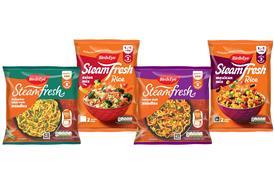



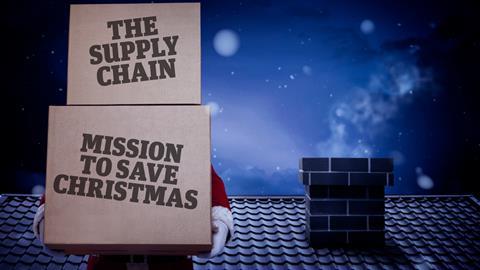
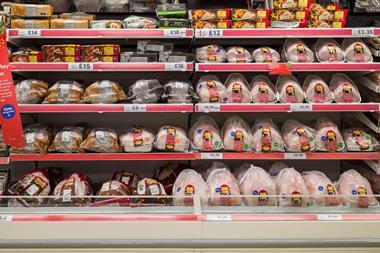
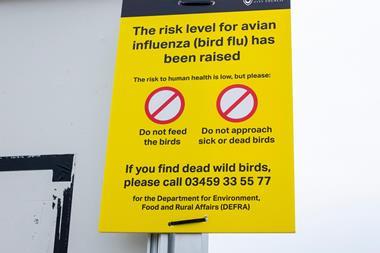
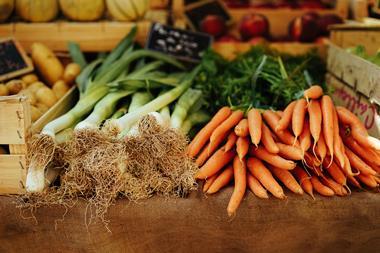
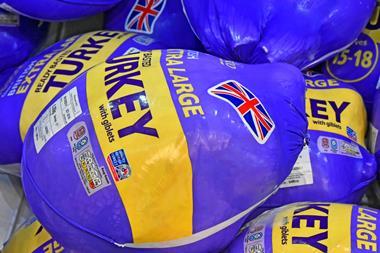








No comments yet